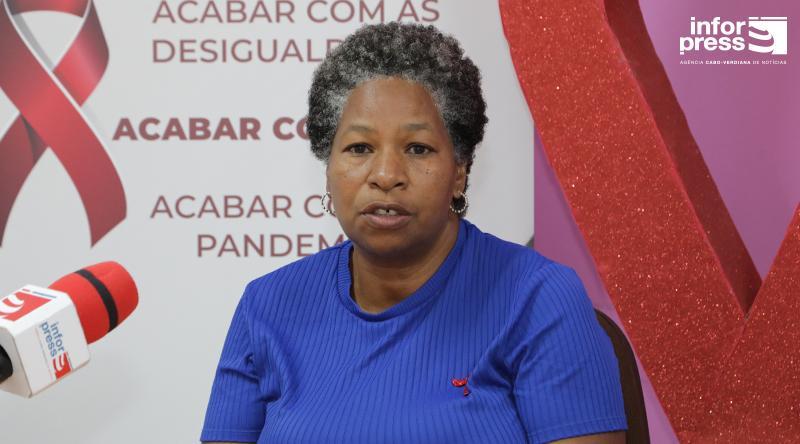Africa-Press – Cape verde. Cape Verde registered 315 new cases of HIV infection by September 2023, carried out 23 thousand tests and women continue to be the most affected population, the executive secretary of CCS/Sida revealed in an interview with Inforpress.
Celina Ferreira, who was speaking as part of World AIDS Day, which is celebrated on December 1st under the motto “Community leadership to end AIDS”, said that by September 23 thousand tests had been carried out and that women were the population most affected by HIV represented a rate of 0.7% of the 0.6% prevalence that exists in the general population.
“The epidemiological context of HIV in Cape Verde is concentrated, with low prevalence in the sexually active population, aged 15 to 49, which is estimated at 0.6%, with women being the most affected, representing 0.7%”, he highlighted. , advancing an estimate of 4 thousand people living with the disease in the country.
Celina Ferreira, who assured that heterosexuality continues to be the most frequent form in terms of contagion, highlighted, however, that relationships between two men have been more prevalent, with out of every hundred diagnosed there are ten living with HIV.
Also according to the executive secretary of the Coordination Committee to Combat AIDS (CCS/Sida), three out of every hundred people who use drugs are diagnosed with the disease, just as four out of every hundred people living with sex have HIV.
“These populations demand combined prevention care, support in HIV services, inclusion strategies and acceptance of the vulnerable condition in which they live”, he said, revealing that the majority of people with HIV live on the island of Santiago and Praia. , more specifically.
The head of the sector, who admits the need to work with young people to prevent the virus from entering their body, that is, to maintain a healthy lifestyle, pointed out work to be carried out that meets human rights, the mitigation of stigma and discrimination, as well as the autonomy of vulnerable populations.
This is because, he added, these target audiences are exposed to various risks, including multiple partners, survival and not using condoms, which ends up being a risk factor for the contagion and transmission of sexually transmitted diseases, including HIV.
“Right now we are in the context of eliminating HIV and, in 2024, we will do everything to eliminate vertical transmission, that is, from mother to child. To achieve this, we have challenges for 2030, preparing the three thousand or so people living with HIV to take their medicine to have an undetectable viral load, working with teenagers and young people”, he explained.
With regard to key and vulnerable populations, particularly men who have sex with men, Celina Ferreira said that a treatment called “PrEP”, a combination of medications, is being prepared, aiming to prevent HIV contamination.
However, he warns that despite the effectiveness of the treatment, the most important thing is the correct use of condoms and lubricating gel in all sexual acts.
It also states that the population with HIV continues to be the target of discriminatory acts and self-stigma, as they are people with low levels of education, without jobs, the majority of whom are women who live in constant threat and do not reveal their disease status.
“We are working to increase tolerance and human rights, as there are still cases of rejection in the family and at work. We want to work to reinforce this content, as integration and inclusion are the best way to end the disease”, he stated, also pointing out fear and shame as major constraints for people living with HIV.
The same source points out that CCS/Sida has advanced with proximity strategies in accordance with the epidemiological context of HIV, always focusing on places where there is a higher incidence, working in schools, with people with disabilities, taxi drivers and others, drug users, finally with all vulnerable populations.
CCS/Sida since its creation, as he explained, is in all urban centers and communities working towards the autonomy of people with HIV in order to acquire knowledge and take assertive measures for their health, as well as the responsibility of managing of their sexuality within the context of illnesses.
This year, “Red December”, which is marked under the motto “Community leadership to end AIDS”, calls on communities to take a path towards the elimination of AIDS.
Activities related to the date are centered at the Cesaltina Ramos school and throughout the country.
For More News And Analysis About Cape verde Follow Africa-Press






